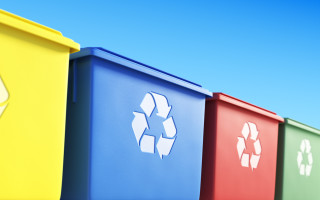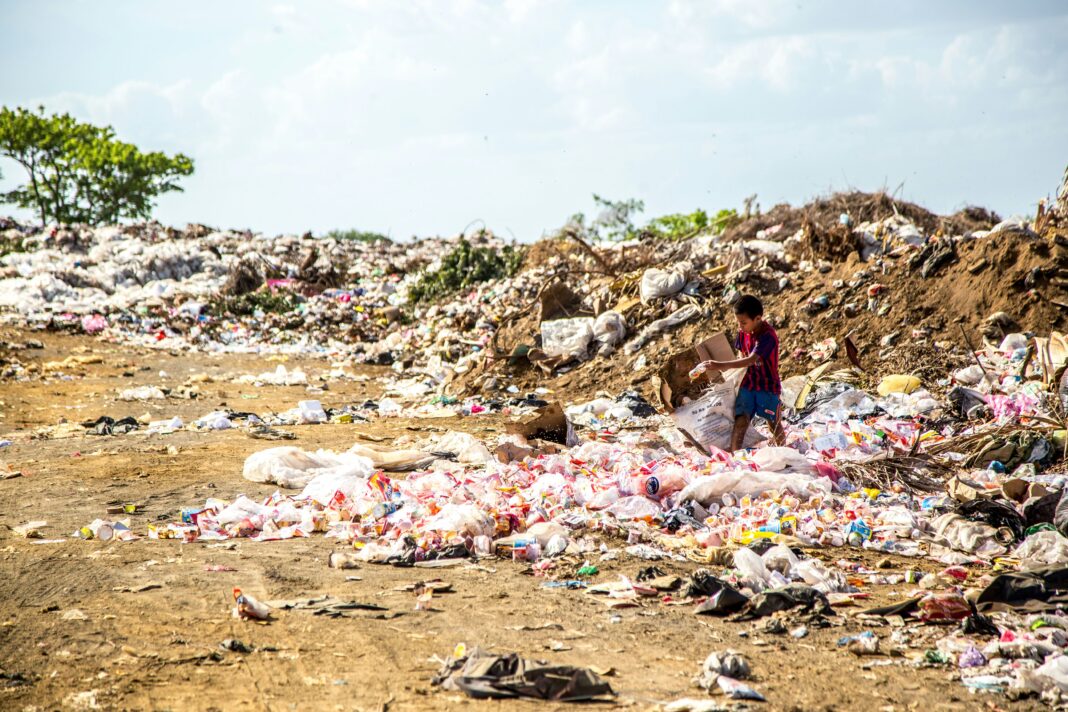It was a hot morning in May 2024. I quickly gulped down my tea and rushed to the cab. I had a scheduled interview with Mehreen Raza, the founder of “She Guard.” The startup has introduced biodegradable, eco-friendly, and herbal-treated sanitary napkins for women.
She Guard is one of the few companies in Pakistan taking an innovative approach to solid waste management.
Talking with Mehreen was an incredible experience. A postgraduate from the US-Pakistan Centre for Advanced Studies in Water, Sanitation, and Health Sciences (Hygiene) discipline and with a multitalented team of experts, Raza is dealing with the increasing problems of solid waste management, health concerns, and environmental issues. She aims to provide a sustainable and healthier solution for feminine hygiene.
While covering her story, I came across some mind-blowing facts and was curious to dig deep into Pakistan’s solid waste management scenario.
According to government estimates, around 87,000 tons of solid waste are produced weekly, mostly from big cities. Karachi, the largest city in Pakistan with an estimated population of 20 million people, generates over 16,500 tons of municipal waste daily.
In Pakistan, local and municipal governments are responsible for collecting waste. In big cities, nearly 60 to 70 percent of solid waste is collected daily. The garbage collection fleet comprises open trucks, tractor-trolley systems, and arm roll trucks for secondary collection and transfer.
Traditional methods such as handcarts and donkey pull-carts are used for primary waste collection in remote areas. Some municipalities hire street sweepers and sanitary workers to augment other poor collection methods. They use wheelbarrows and brooms to collect solid waste from small heaps and dustbins and store it in formal and informal depots.
This traditional waste management system struggles to keep up with increasing waste volumes. Innovative solutions are needed to address this pressing issue.

According to the International Trade Administration, Pakistan faces multiple challenges in waste management infrastructure, resulting in significant environmental issues. The huge municipal waste is disposed of through burning, dumping, or burying in empty areas, posing risks to the overall health and well-being of the local population.
Waste Management Practices Worldwide
An efficient waste management system has become a pressing global concern in an era of increasing urbanization and rapid population growth. Over the past decade, cities worldwide have produced enormous waste, posing adverse threats to human health and the environment.
According to an estimation, the annual amount of solid waste generated worldwide will increase to 2.2 billion tons by 2025. Each individual generates 0.11 to 4.54 kg of solid waste each day.
Alarmingly, various reports show that only 33 percent of solid waste generated in urban areas is not disposed of in an environmentally friendly and safe manner.
Amid this global crisis, several countries are introducing innovative solutions for waste management. An example is Germany, which has a successful dual system for packaging waste. Here, manufacturers are responsible for collecting and recycling their packaging materials. Yellow bins are provided for packaging waste, and citizens are actively involved in sorting.
Blockchain in waste management
In the era of big data, technologies like sensors, AI, blockchain, and deep learning prove invaluable in effective waste tracking, rapidly and accurately analyzing data, and facilitating the transition to a circular economy.
Katarzyna Bułkowska is a Professor at the Department of Environmental Biotechnology, Faculty of Geoengineering, University of Warmia and Mazury in Olsztyn, Poland. She says Blockchain technology provides a secure and transparent platform for recording every step in the waste management lifecycle, from waste generation to collection, transportation, recycling, or disposal.
Bułkowska’s research, published in MDPI, highlighted emerging technologies associated with Industry 4.0, like blockchain. It can play a potentially transformative role in revolutionizing waste management practices.
Furthermore, this research unveiled the benefits of integrating blockchain within the circular economy. Automated systems powered by the blockchain and connected through the Internet of Things (IoT) can significantly enhance the efficiency and transparency of waste management systems worldwide.
Blockchain Application Environment Sector
Many developing countries are utilizing blockchain technology in the waste management sector. Current applications of blockchain focus on payment or reward facilitation and monitoring and tracking waste. In the first case, an entity depositing waste is rewarded or paid with a blockchain-secured digital token, which can be redeemed for goods or exchanged for other currencies.
In European countries, Plastic Bank uses blockchain rewards to incentivize individuals to become plastic waste collectors. This initiative aims to reduce the amount of industrial plastic waste in oceans. This gathered waste is then brought to collection points and weighed before the payment is made to the collector through a blockchain-based banking application.
The blockchain’s immutability and transparency prevent fraudulent and corrupt practices, but the process needs a legal framework and strict monitoring policies. Likewise, reverse vending machines can help with waste checking instead of human workers.

In the second case, data on the type of waste collected and waste transfers is recorded on the blockchain. AREP, a subsidiary of the National Railway Company France, uses blockchain technology to monitor the amount, type, and frequency of waste collected in train station waste bins to optimize waste collection.
Moreover, NRCF recorded waste data and transfers in blockchain transactions using the digital identities of bins on train platforms. The incentive for this was primarily financial; there was insufficient data to produce precise invoices from the waste collector. However, it poses a risk of station overcharging, which was overcome using blockchain and bin sensors.
The practice benefited the environmental sector in the long term. However, it is no longer in use as waste management was not a priority for the station management. Initiatives with similar intentions of collecting waste type and amount of data to inform more effective and efficient waste management are in process.
Blockchain technology can improve waste management by automating tasks such as waste collection scheduling and payment processing, leading to increased efficiency and cost savings. Consequently, it provides more resources to improve waste management infrastructure and services.
Currently, blockchain technology faces several challenges, including but not limited to the need for legislative frameworks to support blockchain implementation and the energy consumption associated with blockchain operations.
Nevertheless, ongoing technological advancements and an increasing understanding of blockchain’s capabilities provide optimism for overcoming these challenges.
References:
- https://www.frontiersin.org/journals/politicalscience/articles/10.3389/fpos.2020.590923
- https://www.mdpi.com/1996-1073/16/23/7742
- https://www.frontiersin.org/journals/politicalscience/articles/10.3389/fpos.2020.590923
- https://www.frontiersin.org/journals/politicalscience/articles/10.3389/fpos.2020.590923
- https://www.frontiersin.org/journals/politicalscience/articles/10.3389/fpos.2020.590923
- https://www.frontiersin.org/journals/politicalscience/articles/10.3389/fpos.2020.590923
- https://www.frontiersin.org/journals/politicalscience/articles/10.3389/fpos.2020.590923
More from the Author: Sania Alam— The Super Learning Queen

Saadeqa Khan is the founder, CEO, & Editor-in-Chief of Scientia Pakistan. She’s a member of the Oxford Climate Journalism Network (Second Cohort) and NASW. Saadeqa is a fellow of NPF Washington, The Falling Walls Foundation, and the Science Journalism Forum. Saadeqa has won several international journalism grants and awards for her reports.

